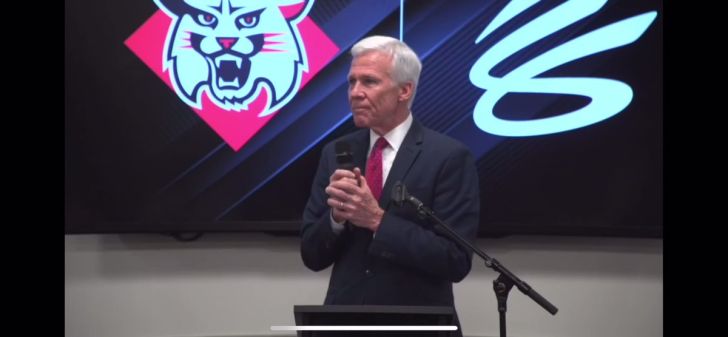In the words of Nelson Mandela, “Sport has the power to change the world. It has the power to inspire. It has the power to unite people in a way that little else does.” I believe coaches hold much of that power. Why do I believe that? I had the fortune of playing and working for a coach that spent 33 years inspiring and uniting players from all over the world.
It’s said that coaching is an art and a science. Clearly up until this point, my focus has been on the science behind it. Today, I want to switch gears and talk about the art of coaching. I can think of no person who mastered the art of coaching quite like Coach McKillop, my college coach and later boss who decided to step down as head coach last week. In reflecting and talking with old teammates, I was reminded of the beauty of coaching, not the set plays (although those too can be beautiful) or half time speeches, but the lessons learned and the lives changed.
In this weeks 3 point’s, I want to share a fraction of what I have learned from Coach McKillop.
1. Coach McKillop used basketball to teach about life. While we worked toward wins and championships, he often attached his coaching to being a husband, a dad, and a citizen. I can think of no better example of this than a saying I’ve heard hundreds of times from him:
When you help somebody, you help yourself.
In a motion offense, success is predicated on sacrifice and being willing to help your teammates get a shot. In basketball, it is often the player who sets the screen that gets open. When you help somebody, you help yourself. While that is how the idea was introduced by Coach McKillop, he took it further. Whether it was having us send media guides to past coaches who helped us get to Davidson, volunteering or writing cards to fans going through hard times, Coach McKillop wanted to build the habit of helping others, knowing we would be better for it. Turns out, research agrees.
2. Trust, Commitment, Care
These three words make up the code of Davidson Basketball. And they have for nearly 30 years. Today, these would be considered core values. According to performance coach and author, Steve Magness, “The trouble with core values is when they are plastered around your walls but you don’t live them. They don’t mean anything. Real core values guide actions. And your actions quickly tell everyone around if they are truly values or simply slogans.”
Trust, Commitment and Care are not trendy buzzwords, these values are true to Coach McKillop. And there is no secret recipe that I know of (maybe you can ask him) but it was clear these values guided his actions on a daily basis. While you can see the TCC tattoo on Stephen Curry and many other alums, Coach McKillop had them tattooed on his heart.
3. Toughness and Tenderness
I certainly felt this as a player, but I learned this getting to coach under him. The art of coaching is not in balancing tenderness and toughness (they are not either/or) but being able to provide both. In Grit by Angela Duckworth, she refers to toughness and tenderness as supporting and demanding, and her book details research that parents who were both supportive and demanding led to better academic and well-being related outcomes.
Make no mistake, Coach McKillop coached me hard. But he was also fun to play for and I knew he cared for me. The key here is perception. The question you should be asking is not whether or not you care for your athletes, but instead, whether or not your athletes believe you care for them.
How did I know this for sure? One story comes to mind. My junior year got off to a rough start. I couldn’t buy a shot. So I put my head down and worked harder. And I kept at it even though I wasn’t seeing the results. It was becoming a mixture of obsession, perfectionism and burnout. One day after practice, I was getting ready to work on my shot and Coach McKillop pulled me aside. I don’t remember exactly what he said but I will never forget the gist. Eventually he told me to skip the workout, put the ball down and go home. But before then he told me that, he told me I was a joy to coach, even if I didn’t make another shot. Instead of worrying about making shots, he told me he wanted to play with joy and have fun. He didn’t tell me to get a wider base or hold my follow through. I instantly felt less like a sinking field goal percentage and more like a human with a coach who had my back.
So, what would a coach who has 23 conference championships, 11 Coach of the Year Awards, 10 NCAA Tournament appearances and over 600 wins say he would do differently if he could do it all over again? In his own words,
One simple thing: I would love more.




